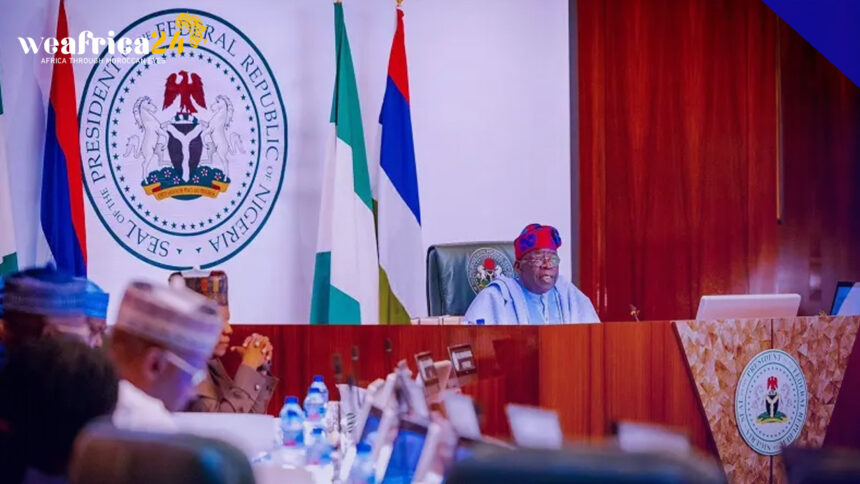Amid mounting pressure, Nigeria’s cabinet ministers have convened emergency meetings to address the country’s economic challenges and soaring food prices, following the fallout from President Bola Ahmed Tinubu’s recent reforms.
Protests erupted on Monday in northern Niger state, where demonstrators, predominantly women and youths, staged blockades on major roads in the state capital, Minna, demanding assistance with rising living costs.
Since assuming office in May, Tinubu has implemented reforms that include the removal of fuel subsidies and currency controls, resulting in a significant increase in petrol prices and a surge in living expenses as the naira depreciates sharply against the dollar.
The emergency meetings, which commenced on Tuesday, saw the participation of key ministers responsible for finance, information, budget and national planning, and agriculture, as well as the national security advisor, central bank director, and other senior aides.
Information Minister Mohammed Idris informed reporters, “Once these meetings conclude, we will provide a definitive statement on the government’s stance regarding this matter. Discussions are ongoing, and we anticipate a prompt resolution for Nigerians.”
Additional ministerial meetings have been scheduled for Wednesday and Thursday, coinciding with Tinubu’s return to Nigeria following a brief private visit to France.
While government officials have urged patience regarding the reforms, emphasizing their potential to attract more foreign investment to Africa’s largest economy, Nigerians are feeling the immediate impact. Inflation stood at 28.92 percent in December, with food prices soaring by 33.93 percent, according to the National Bureau of Statistics.
The rapid depreciation of the naira against the US dollar, following the abandonment of a multi-tier exchange rate system and the liberalization of the local currency, has exacerbated the situation. Before the reforms, the naira traded at around 450 to the dollar, but on Monday, it reached 1,400 to the greenback, nearing the parallel black market rate.
A weaker naira translates to higher costs for imported goods, as businesses grapple with increased expenses for the dollars needed to import goods into the country.
According to the Economist Intelligence Unit (EIU), the recent devaluation of the naira by the central bank could potentially boost investment, but it anticipates continued pressure on the country’s foreign reserves.
Nigeria, as Africa’s largest oil producer, has long grappled with foreign currency liquidity challenges, compounded by lagging petroleum output and cautious foreign investor sentiment.







